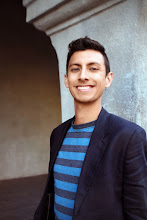Feminized Society and "Bych" Propaganda
My research into biology, gender, and genetics turns up some very interesting popular literature. Most recently, I read a post by an author that claims to not be racist or woman-hating. The post, entitled Bad Men Give Women AIDS, focuses on an article written by an AP Medical Writer, Maria Cheng. Before you read this article, I'd like to give a small litmus test on this author's perspective.
1. The blog is entitled "The Rantings of a Young Man in a Feminized Society."
2. After claiming that the only voice of reason is a male (vs. female) scientist, he ends the entry with "In case you're wondering, the author is named Maria Cheng. It all makes sense to now."
3. The young man's article has numerous biological inconsistencies, such as equating the medical terms HIV and AIDS and assuming they are interchangeable in his argument.
Now, I study "gendered science," or how certain scientific ideas gain an artificial gender component, as part of my project. I have to admit that I dislike a lot of feminist counter-history (and gay counter-history) and I think gender encroaches far too much in our current biological thinking. Still, I'm beginning to wonder if all gender-central thinking, especially anti-feminist, is highly destructive. I understand that feminist counter-history, or the purposeful inclusion of women into historical accounts, is good for the history discipline. Now that I've actually seen blatant anti-feminist writing, I'm quite disgusted by the whole gender-centered endeavor.
I stumbled across this blog by looking up popular references to "feminized" biological traits, specifically the way homosexual males are often depicted as being biologically feminine in some way. A good, if not extreme, example of this is David France's work on feminized traits, such as the counter-clockwise hair whorl. After some close analysis, I can't help but think that this science, much like the gender-focused anti-feminist entry I mentioned above, is simply junk... and I'm definitely not a fan of junk science (nor junk hate-speech, but what can you do?)
I've been pouring over the genetic statistics of gay behavior and I'm starting to question the basic assumptions of gay gene testing. After my entry and research on the history of biological homosexuality, I'm starting to wonder why scientists are looking for one gay gene. If, historically, there has been more than one type of homosexuality, would it not make sense that this particular trait would be genetically polymorphic? It's possible that many people are genetically predisposed to homosexuality, while some might choose to mimic same-sex behavior? It's likely that there is more than one gay gene, and even more likely that there is more than one morph, or form, of homosexuality.
Some statistical studies support this, including twin studies. If more than half of identical twins have the same sexuality as their sibling, then it strongly correlates homosexuality to a genetic marker. However, if not all siblings share the same orientation as their sibling, then there may be types of homosexuality (or complex factors for these other twins) that are not genetic.
Either way, I don't think "feminization" is a good, let alone universal, explanation for sexuality. The whole gender-centered science and language seems so ignorant to me, not to mention a little ethnocentric. Which culture's gender types should we use, anyway? They're all have a different set of assumptions of what makes someone a woman vs. a man; no gender-specific idea can be taken out of a cultural or ethnic context. Oh well.
Anyway, keep your eyes peeled for more crazy, "feminized" biological ideas. Post me if you have any good leads.
Labels: anti-feminist, Biology, feminist, feminized, Gay Gene, genetics, Homosexuality


1 Comments:
Very interesting. It is always easier to simplify a complex issue for the purposes of criticism rather than attempting to wade through all of the complexities. I will look forward to more writing on this topic from you.
Post a Comment
<< Home